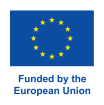Krishna K Damodaran

Address/Country
Department of Chemistry, Science Institute, Dunhagi 3, 107 Reykjavík, Iceland
Institution name and department
University of Icleand, Department of Chemistry
Position held
Professor and Head of Chemistry
Key words
- Supramolecular gels
- Crystallization
- Gel phase Crystallization
Areas of Research/Expertise
Dr. Krishna´s research contribution to date have been within the area of Inorganic chemistry and material properties such as sorption studies, anion recognition etc. of coordination polymers, effect of anion binding on organic receptor molecules, inclusion properties of metalloporphyrins, catalysis and gel chemistry. Our group have been working on the development of low-molecular weight supramolecular gelators (LMWGs) and their structure property correlation. Our current research is based on the syntheses of gelators that match the chemical structure of the crystallization substrate and hence provide an active nucleation surface for organic/inorganic (drug) molecules. We have compared the gel phase and the solution state crystallization of Cu(II) complexes in various solvent compositions and showed that gel phase crystallization results in thermodynamically stable form under ambient conditions.The tuning of gelation ability (MGC) and thermal/mechanical strength of parent gelator by alerting the functional group have proved the importance of non-bonding interactions and functional groups in designing LMWGs with tunable properties. We have also shown the role of metal coordination in supramolecular gel formation by coordinating zinc(II) and cadmium(II) salts with pyridyl amide based non-gelator ligands. Our idea is to explore mechanochemistry in gel phase crystalistion and compare the morphology of the crystals
5 Most representative publications related to Mechanochemistry
5 Most representative publications non-related to Mechanochemistry
- Unraveling the self-assembly modes in multi-component supramolecular gels using single crystal X-ray diffraction, Dipankar Ghosh, Abbas D. Farahani, Adam D. Martin, Pall Thordarson, and Krishna K. Damodaran, Chem Matter, 2020, 32, 8, 3517-3527.
- Reaction Chemistry of the syn-[Mo2O2(m2-S) 2(S2)(DMF)3] Complex with Cyanide and Catalytic Thiocyanate Formation. S. G. Suman, J. M. Gretarsdottir, P. E. Penwell, J. P. Gunnarsson, S. Frostason, S. Jonsdottir, Krishna K. Damodaran and A. Hirschon, Inorg. Chem. 2020, 59, 11, 7644–7656
- Enhanced Mechanical and Thermal Strength in Mixed-Enantiomers-Based Supramolecular Gel. D. A. Tómasson, D. Ghosh, Z. Kržišnik, L. H. Fasolin, A. A. Vicente, A. D. Martin, P. Thordarson, and Krishna K. Damodaran, Langmuir 2018, 34, 12957−12967
- Pharmaceutical Polymorph Control in a Drug-Mimetic Supramolecular Gel. J. Foster, Krishna K. Damodaran, A. Maurin, G. M. Day, H. P. G. Thompson, G. J. Cameron, J. C. Bernal and J. W Steed, Chem. Sci., 2017, 8, 78-84
- Selective gelation of N-(4-pyridyl)nicotinamide by copper(II) salts. D. Ghosh, I. Lebedytė, D. S. Yufit, Krishna K. Damodaran and J. W. Steed, CrystEngComm, 2015, 17, 8130-8138
- Supramolecular gel phase crystallization: orthogonal self-assembly under non-equilibrium conditions. D. Krishna Kumar and J. W. Steed, Chem. Soc. Rev., 2014, 43, 2080.
- Dirhodium Paddlewheel with Functionalized Carboxylate Bridges: New Building Block for Self-Assembly and Immobilization on Solid Support, D. Krishna Kumar, A. S. Filatov, M. Napier, J. Sun, E. V. Dikarev and M. A. Petrukhina, Inorg. Chem., 2012, 51, 4855.
- Recyclable Dirhodium Catalysts Embedded in Nanoporous Surface-Functionalized Organosilica Hosts for Carbenoid-Mediated Cyclopropanation Reactions, E. V. Dikarev, D. Krishna Kumar, A. S. Filatov, A. Anan, Y. Xie, T. Asefa, M. A. Petrukhina, ChemCatChem, 2010, 2, 1461.
- Exploring the Effect of Chain Length of Bridging Ligands in Coordination Complexes and Polymers Derived from Mixed Ligand Systems of Pyridylnicotinamides and Dicarboxylates. D. Krishna Kumar. Inorg Chim Acta, 2009, 362, 1767.
- Solid State Structural Evidence of Chloroform-Benzene-Chloroform Adduct Trapped in Hexaanthryl Octaaminocryptand Channels, P. S. Lakshminarayanan, D. Krishna Kumar, P. Ghosh. J. Am. Chem. Soc. 2006, 128, 9600.
Orcid ID/Google Scholar/Researchgate/Scopus profiles
Orcid ID: https://orcid.org/0000-0002-9741-2997
Google Scholar: https://scholar.google.com/citations?user=tHQPT-0AAAAJ&hl=en
Researchgate: -
Scopus profiles: -

